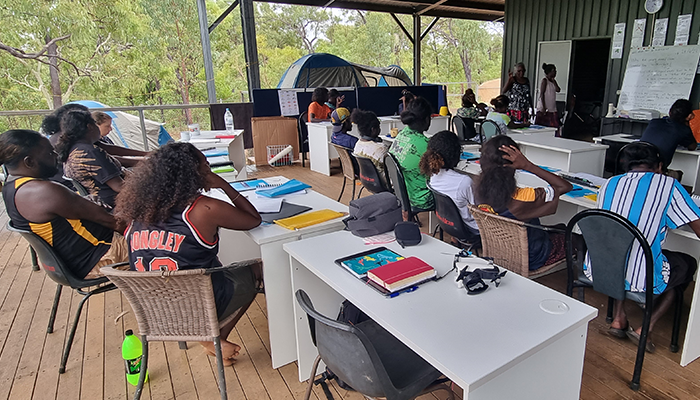Deforestation hurts the environment, and poses a threat to plants, animals and humans. But afforestation is a problem too: for example, when grasslands turn into forest.
As a master's student in South Africa, Emma Gray studied how the forests were creeping into the savanna. ‘Bush encroachment’ is a global phenomenon caused in large part by climate change, and Emma looked at how it affects biodiversity and the carbon cycle.
“I wanted to know what would happen to the ecosystem if we lost Africa’s great savannas,” says Emma.
“Aside from the impacts on the water cycle, fire regimes, and plant biodiversity, I found that the zebras, lions and other iconic animals will struggle to graze, and tourism will struggle as it becomes more and more difficult for tourists to see the animals they came to see.”
Now, as a PhD student in Australia, Emma is looking at the basic science that underpins the growth of plants. As a member of Ian Wright’s lab at Macquarie University, her work will form part of a larger Australian Research Council funded project to understand how plant traits affect plant growth.
“This is one of the central questions in ecology, particularly as we try to understand how climate change will affect the distribution of forests, grasslands and other ecosystems,” says Emma.
“It’s nearly impossible to model ‘reality’, when there are so many species to account for. To understand the changes we’re seeing from climate change, we need to simplify ecosystems.”
Her research aims to categorise species based on their traits and how fast they grow. For example, how is the growth of a tree affected by the size of its leaves or the density of its wood?
"I’m particularly interested in how these factors affect a plant’s growth rate differently over its life. A lot of what we know so far is based on seedlings, but trees can live for hundreds of years,” says Emma.
Emma’s work will contribute to models which could help us predict how ecosystems might be affected by climate change, and help us understand how plants interact with each other and the environment.
Emma is one of 15 women from around the world awarded one of this year’s $20,000 UNESCO-L’Oréal For Women in Science International Fellowships, which support talented young women scientists to take up research positions in other countries. She received her prize in Paris on Wednesday 19 March.
As a master's student in South Africa, Emma Gray studied how the forests were creeping into the savanna. ‘Bush encroachment’ is a global phenomenon caused in large part by climate change, and Emma looked at how it affects biodiversity and the carbon cycle.
“I wanted to know what would happen to the ecosystem if we lost Africa’s great savannas,” says Emma.
“Aside from the impacts on the water cycle, fire regimes, and plant biodiversity, I found that the zebras, lions and other iconic animals will struggle to graze, and tourism will struggle as it becomes more and more difficult for tourists to see the animals they came to see.”
Now, as a PhD student in Australia, Emma is looking at the basic science that underpins the growth of plants. As a member of Ian Wright’s lab at Macquarie University, her work will form part of a larger Australian Research Council funded project to understand how plant traits affect plant growth.
“This is one of the central questions in ecology, particularly as we try to understand how climate change will affect the distribution of forests, grasslands and other ecosystems,” says Emma.
“It’s nearly impossible to model ‘reality’, when there are so many species to account for. To understand the changes we’re seeing from climate change, we need to simplify ecosystems.”
Her research aims to categorise species based on their traits and how fast they grow. For example, how is the growth of a tree affected by the size of its leaves or the density of its wood?
"I’m particularly interested in how these factors affect a plant’s growth rate differently over its life. A lot of what we know so far is based on seedlings, but trees can live for hundreds of years,” says Emma.
Emma’s work will contribute to models which could help us predict how ecosystems might be affected by climate change, and help us understand how plants interact with each other and the environment.
Emma is one of 15 women from around the world awarded one of this year’s $20,000 UNESCO-L’Oréal For Women in Science International Fellowships, which support talented young women scientists to take up research positions in other countries. She received her prize in Paris on Wednesday 19 March.



